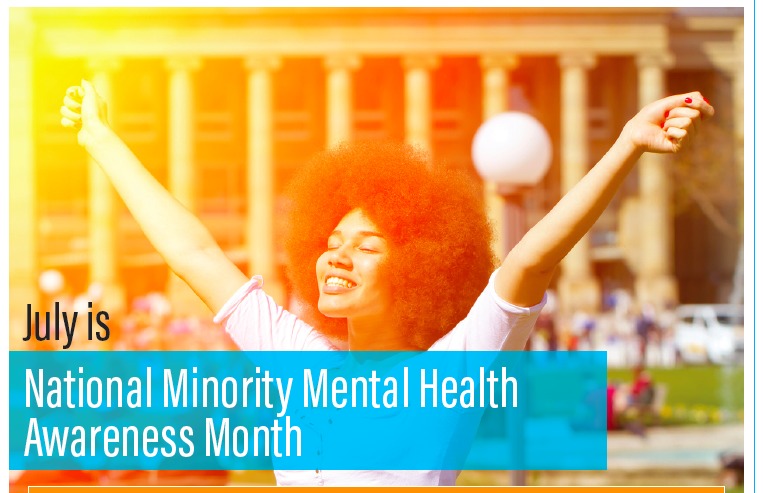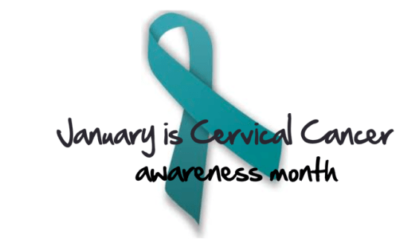
JULY IS NATIONAL MINORITY MENTAL HEALTH AWARENESS MONTH
In 2008, the US House of Representatives designated July as Bebe Moore Campbell National Minority Mental Health Awareness Month, which is now known as National Minority Mental Health Awareness Month. The resolution was sponsored by Rep. Albert Wynn [D-MD] and cosponsored by a large bipartisan group to achieve two goals:
- Improve access to mental health treatment and services and promote public awareness of mental illness.
- Name a month as the Bebe Moore Campbell National Minority Mental Health Awareness Month to enhance public awareness of mental illness and mental illness among minorities.
As part of this effort, The HHS Office of Minority Health joins partners at the federal, state, local, tribal, and territorial levels to help raise awareness about mental illness and its effects on racial and ethnic minority populations.
According to the Substance Abuse and Mental Health Services Administration (SAMHSA):
- In 2017, 41.5% of youth ages 12-17 received care for a major depressive episode, but only 35.1% of black youth and 32.7% of Hispanic youth received treatment for their condition.
- Asian American adults were less likely to use mental health services than any other racial/ethnic group.
- In 2017, 13.3% of youth ages 12-17 had at least one depressive episode, but that number was higher among American Indian and Alaska Native youth at 16.3% and among Hispanic youth at 13.8%.
- In 2017, 18.9% of adults (46.6 million people) had a mental illness. That rate was higher among people of two or more races at 28.6%, non-Hispanic whites at 20.4% and Native Hawaiian and Pacific Islanders at 19.4%.
The Agency for Healthcare Research and Quality (AHRQ) reports that “racial and ethnic minority groups in the U.S. are less likely to have access to mental health services, less likely to use community mental health services, more likely to use emergency departments, and more likely to receive lower quality care. Poor mental health care access and quality contribute to poor mental health outcomes, including suicide, among racial and ethnic minority populations.”
OTHER NEWS
January is Cervical Cancer Awareness Month
According to The American Cancer Society, “Cervical cancer was once one of the most common causes of cancer death for American women. The cervical cancer death rate dropped significantly with the increased use of the Pap test for screening. But the death rate has not changed much over the last 15 years.” And several studies show that a disproportionate number of women that die each year from cervical cancer are Black women.
The American Cancer Society also stresses the importance of regular screening for the disease, emphasizing that, “Screening tests offer the best chance to have cervical cancer found early when successful treatment is likely.
I AM THE CHANGE FORUMS
The Black Women’s Agenda, Inc. is taking its “Living Your Best Life At Every Age: I Am The Change” town hall on the road! Introduced with support from AARP at its 41st Annual Symposium in September 2018, the forum encourages participants to consider where they are and want to be from a financial, educational and health perspective, and to be a catalyst for change for themselves, their families, and communities.
SPOTLIGHT ON THE TOP LADIES OF DISTINCTION, INC.
If you are looking for the Top Ladies of Distinction, go into Black communities. You’ll find them planting fruit and vegetable gardens, tidying up historic cemeteries, and removing graffiti. They will be mentoring local teens, hosting workshops and seminars that prepare them for future success, and teaching youth the importance of giving back. They will be providing companionship, conversation and valuable information to the elderly. They will be improving the quality of life in neighborhoods across the United States.
© 2025 The Black Women’s Agenda, Inc. All Rights Reserved. Privacy Policy








